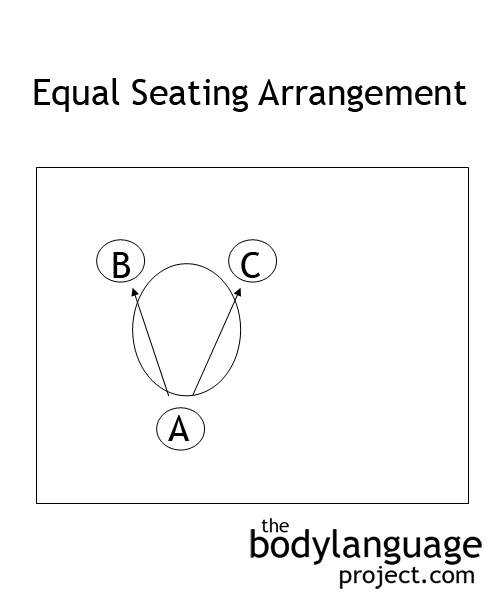Research conducted in 1981 by researcher Marianne La France out of Boston College found that women are much more likely to mirror others than men, and the more feminine the women the greater their mirroring. This isn’t surprising at all given the nature of mirroring. As we have covered thus far, mirroring is a form of empathy and rapport building. Mirroring is also a form of submission because one person must initiate positions first, and the other must follow. Women are nurtures by nature and so tend to want to build relationships, one of the tools they use more proficiently is mirroring.
Further research suggests that men are four times less likely to mirror other men, than women are to mirror another woman. Women have also been found to frequently mirror men, whereas men rarely, or only reluctantly, mirror other women, with only one exception, that being during courtship. The reason for this lies in Erno Herman’s research with Leiden University in Netherlands who in 2006 discovered that the administration of testosterone to subjects reduced empathetic behavior through facial mimicry. As mirroring requires an emotional connection in the form of empathy, estrogen rather than testosterone, is a more facilitative hormone. This gives us vital clues to the role of mirroring, and brings us back full circle to the core issue dealt with here, which is that mirroring is a form of rapport building, of which men are less prone to take advantage of.
The fact, as we have covered extensively in this chapter, remains that mirroring can be a great skill in most all facets of life. If you don’t already have it as a part of your repertoire, you should, and if you are a man, should consider it strongly because chances are you don’t do it naturally. Women rate men who display more facial emotions as more caring, intelligent, interesting and attractive which is freely reported by women especially during courtship. This trend naturally extends throughout other areas of life, especially business, but a certain degree of minimizing of expressions should be used when men deal with other men. The research tells us that men tend to rate men who mirror facial expressions in a negative light, describing them as more effeminate. Along the same lines, women who adopt more serious facial expressions when interacting with men, will be seen by them as more intelligent. Thus, to appeal to the opposite sex, the rule of thumb is to use “sex swapping characteristics” whereby we bend toward the sex’s preferences to create more similarity. In other words, men should appear a bit more feminine when interacting with women, and women should appear a bit more masculine when interacting with men.
Men are at an inherent mirroring disadvantage though as researchers have found that they can make fewer than one third the facial expressions that a woman can. What they lack for in facial expressions, though, they make up for in emotional expressions through the body. Therefore, reading body cues is a much better area to consider when reading men. The lack of facial expressions in men, which might be seen as a natural disadvantage, is turned into dominance because men appear less emotional and more “in control”, appearing to maintain their “cool” under more circumstances than women. This doesn’t mean that men fail to experience emotions, because brain scans tell us otherwise. It just means that men are better able to hide their emotions from the rest of us. Women shouldn’t be fooled into thinking men aren’t listening or even empathizing with them simply due to their pan-faced expressions. Women should though, be more watchful of men’s body language, that which happens in areas other than their face, to read their emotions and when they mirror should follow what happens with their arms and legs rather than what happens in their faces which will only be minimal. Conversely, men should do their best to mirror women’s faces as best they can, and make up for whatever expressivity is lacking through other body language channels.



